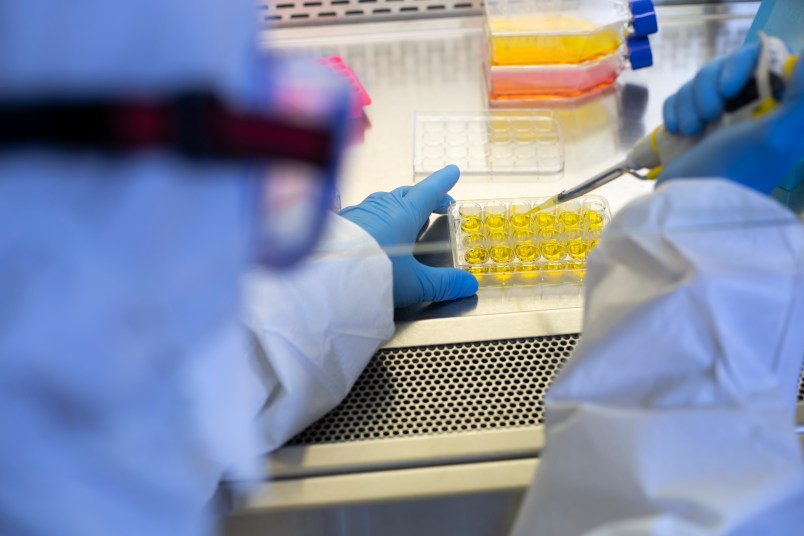Antibody tests often deliver false positives and shouldn’t be used as the basis for decision-making about returning to school or work, the Centers for Disease Control and Prevention said in a recent update.
Also known as “serologic” tests, antibody tests are useful for looking broadly at the prevalence of the novel coronavirus in a given population, the CDC said.
But the guidance noted the high rate of false positives from the tests, especially in populations with low levels of infection.
In a hypothetical population where 5% of people had antibodies, antibody tests might have a “positive predictive value” of just 49%, the CDC said.
“In other words, less than half of those testing positive will truly have antibodies,” the guidance noted.
The same test would get much more accurate — less than 1 in 20 positive results would be false — in a population with 52% prevalence of antibodies, according to the CDC.
For comparison, recent antibody testing in poor neighborhoods in New York City found 34% antibody prevalence at testing locations in the Bronx, according to Gov. Andrew Cuomo’s office. One testing center in Morrisania, a Bronx neighborhood, saw 43% prevalence.
Aside from significantly infected places like food processing plants experiencing COVID-19 outbreaks, the CDC said, antibody tests are more likely to show false positives than false negatives.
The CDC recommended focusing antibody testing in disease-dense places, using a second test to confirm positive results or using a highly specific test.
The CDC guidance also noted that while the presence of detectable antibodies suggests “that some degree of immunity from future infection has developed,” more data is needed to say anything definitively.
“Serologic testing should not be used to determine immune status in individuals until the presence, durability, and duration of immunity is established,” the guidance read.
That followed similar cautions from the World Health Organization and American Medical Association against equating the presence of antibodies with immunity.
As a result of these uncertainties, the CDC said, antibody tests shouldn’t be used to make decisions about congregating in schools, dormitories, correctional facilities, or returning to the workplace.



